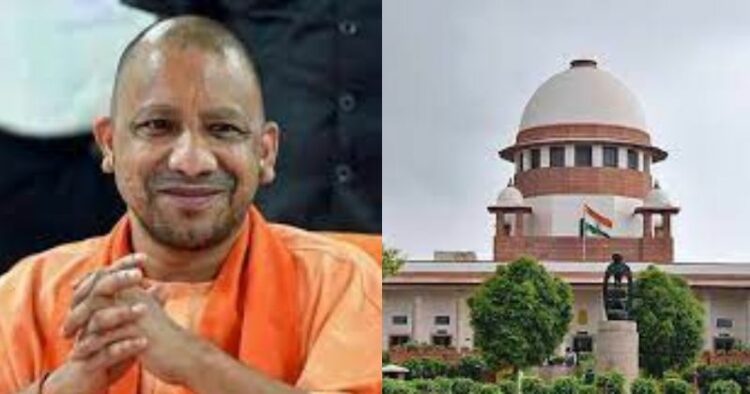The Apex Court pronounced its order in State of UP v. Vaibhav Pandey and Anr. on January 4, 2023, and stayed Allahabad High Court’s decision on OBC reservation for Uttar Pradesh local body polls, directing the State’s Commission to complete the identification of backward classes who require quota for political representation in urban local bodies by March 31, 2023. The Court has directed the Uttar Pradesh Government to conduct urban local body polls without reservation for Other Backward Classes (OBCs). The bench was presided over by Chief Justice DY Chandrachud and Justice PS Narasimha. Solicitor General of India Tushar Mehta appeared for the State of Uttar Pradesh and Dr Mohan Gopal appeared for the All-India Backward Classes Federation.
The State Government put forward the contention that reservation should be provided to the 79 backward class communities listed in the U.P. State Public Services (Reservation for Scheduled Castes, Scheduled Tribes and Other Backward Classes) Act, 1994 with regard to offices of chairpersons of local bodies.
The Supreme Court has permitted the State Government to assign powers after the end of their current terms, in order to safeguard that the administration of civic bodies is not hindered. Yet, administrators who will be assigned powers in the interim will not take significant policy decisions.
Previously, the Uttar Pradesh Government filed an appeal against the December 27, 2022 order of the Allahabad High Court. The Lucknow Bench of the Allahabad High Court had stated that until the “triple test/conditions”, as instructed by the Supreme Court is fulfilled entirely by the State Government, no reservation for the Backward Class of citizens shall be given in the urban local body polls. These conditions in the said Triple Test were laid down by the Supreme Court in the case of Vikas Kishanrao Gawali vs. the State of Maharashtra and others, decided on March 4, 2021.
The triple test requires the government to fulfil three tasks for approval of reservation to OBCs in the local bodies – this takes into account setting up a dedicated commission to conduct a rigorous empirical inquiry into the nature and implications of the backwardness in local bodies, specifying the proportion of reservation required in local bodies in light of recommendations of the commission, so as not to fall foul of overbreadth, and ensuring that reservation for SCs/STs/OBCs taken together does not exceed an aggregate of 50 per cent of the total seats. Before this test, a different procedure was followed, called the “rapid survey” – in each constituency of a municipality, seats were reserved in proportion to the population of the backward class of citizens in the constituency concerned.
The Lucknow Bench of the Allahabad High court opined that merely giving away reservation on the basis of the population loses out a key factor for the determination of backwardness, and that factor is the political representation of the class or group. The High Court took note of the 2010 Constitution Bench judgment in K. Krishna Murthy & Ors vs. Union of India and highlighted that the nature of disadvantages which limit access to education and employment cannot be equated with disadvantages in the arena of political representation.
“Further observation made by Hon’ble Supreme Court in this regard is that the backwardness in the social and economic sense does not necessarily imply political backwardness. Elaborating the difference between the nature of reservation provided under Article 243-D and under Article 15(4) and 16(4), the Supreme Court in K Krishna Murthy also observed that there is an inherent difference between the nature of benefits that accrue from access to education and employment on one hand and political representation at the grassroots level on the other hand,” the Allahabad High Court highlighted.




















Comments